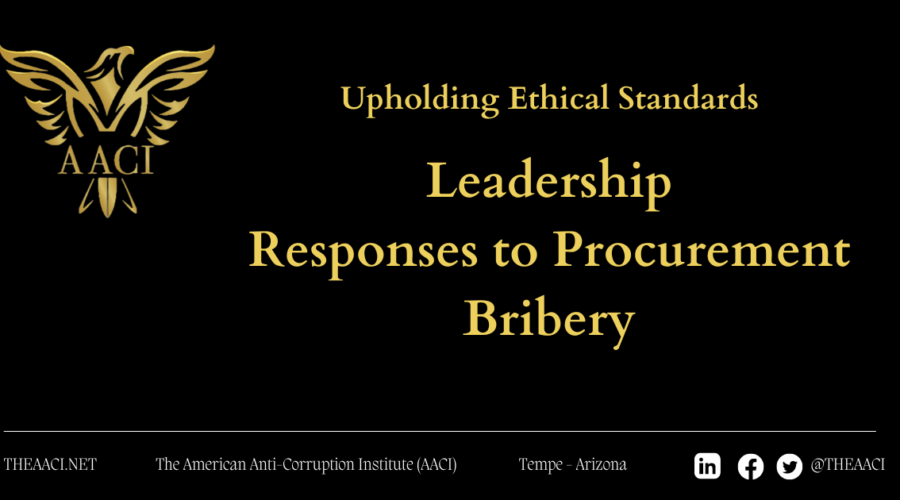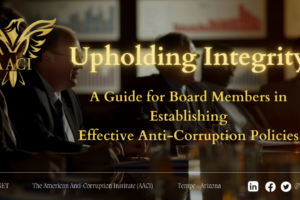Technical staff
April 4, 2024
In the complex landscape of business ethics, leaders often find themselves facing tough decisions that can profoundly impact the integrity and reputation of their organizations. One such scenario arises when undisputed evidence of bribery emerges within the procurement process. This presents a critical juncture where leadership must navigate with wisdom and courage to uphold ethical standards and legal obligations.
Consider the following hypothetical: your procurement department receives incontrovertible evidence from a vendor, detailing a request for a bribe in exchange for renewing a purchase agreement. In such a situation, what should organizational leadership do? Let’s explore two potential courses of action and their implications:
1. Do Nothing:
Pros:
a. Avoidance of Conflict: Opting for inaction may initially seem like a way to sidestep potential conflicts or controversies within the organization.
b. Preservation of Relationships: By choosing to ignore the evidence, there’s a possibility of maintaining existing relationships with the procurement department and the vendor, thereby avoiding disruptions in operations.
Cons:
a. Complicity: However, turning a blind eye tacitly condones corrupt practices, eroding the organization’s integrity and tarnishing its reputation.
b. Legal and Reputational Risks: Failure to address bribery allegations can expose the organization to legal liabilities, hefty fines, and irreparable damage to its reputation, both internally and externally.
2. Respond as per Organization’s Policy and Applicable Laws:
Pros:
a. Upholding Ethical Standards: Taking decisive action aligns with the organization’s commitment to ethical conduct, fostering a culture of integrity from the top down.
b. Legal Compliance: Addressing bribery allegations by organizational policies and relevant laws demonstrates a commitment to regulatory requirements and ethical business practices.
Cons:
a. Internal Friction: Initiating an investigation or disciplinary action may create tensions within the organization, particularly if influential individuals are implicated or if there is resistance to change.
b. Potential Business Disruptions: Enforcing anti-corruption measures could temporarily disrupt operations, impacting productivity and relationships with vendors, albeit in the pursuit of long-term ethical and legal compliance.
In making this decision, leaders must consider not only the immediate repercussions but also the long-term implications for the organization’s culture, reputation, and sustainability. It’s essential to recognize the role of whistleblowing in combating corruption, as outlined in the Standard on Fighting Corruption 280: Whistleblowing, available on The AACI’s membership portal. Encouraging transparency and accountability strengthens the organization’s resilience against corruption, safeguarding its reputation and fostering trust among stakeholders.
In conclusion, when confronted with evidence of bribery in procurement, organizational leadership must demonstrate unwavering commitment to ethical principles and legal compliance. By confronting corruption head-on and fostering a culture of integrity, organizations can uphold their moral compass and contribute to a more just and equitable business environment.
Stay tuned for more insights on navigating the complex terrain of anti-corruption strategies and ethical leadership.











































